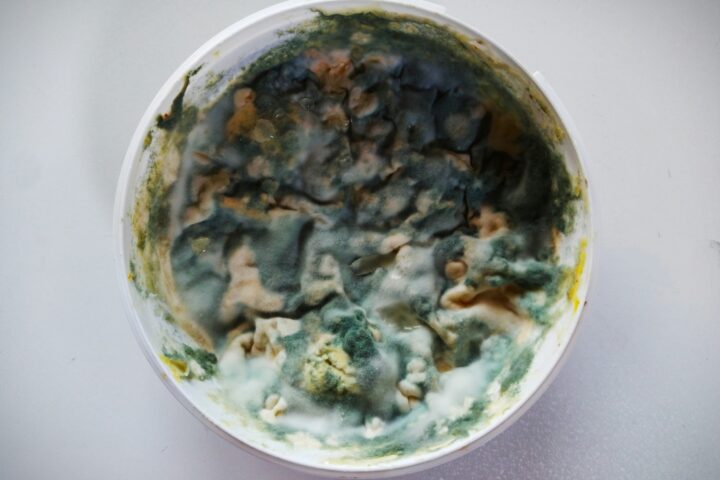
“Future Food”: From development to shopping basket
Protein is a key component in a healthy, balanced diet. However, the majority of protein consumed by humans derives from animals and is extremely resource-intensive to produce. What might alternatives look like? And what needs to happen to enable alternative protein products to end up in consumers’ baskets? At the Swiss-Food Talk, three experts considered the issues.
Friday, February 3, 2023
The past five years have seen a veritable explosion of research into alternative proteins and in the number of companies entering the sector. As the vast majority of protein consumed today is derived from livestock, there would be huge benefits for both the environment and the climate if more protein could be produced using fewer resources. And yet consumers in these parts remain to be convinced by alternative products. Cultural barriers stand in the way. Customers purchase what they are already familiar with. Which products have the potential to shake off the niche label and enjoy mainstream commercial success?
“The inefficiency of animal proteins”
The Good Food Institute in Tel-Aviv is a science-based non-profit organization which aims to promote research and innovation within Israel’s alternative proteins sector. Aviv Oren from the Institute begins his presentation with an overview of the issues. Why should we even consider alternative proteins? “It is a straightforward equation,” he says. 30 percent of the world’s land is used for agriculture. And 70 percent of agricultural land is now used to feed livestock. According to FAO forecasts, the demand for animal products will double over the next decade. “There is not enough land available to meet this demand for meat and dairy products,” says Aviv Oren. It will therefore be necessary to produce protein differently in the future.
“Animal protein is very inefficient to produce. It takes 34 calories of feed to obtain a single calorie of energy from a cow,” Oren goes on to explain. This has a negative impact on natural resources, such as water and land. And intensive livestock farming and the associated methane emissions are also driving climate change. Animal protein ought therefore to be increasingly replaced by alternatives in the future. “For people to switch to alternative products, we need protein that looks, tastes, and can be prepared in the same way as the “real” thing,” adds Oren. Alternative dairy products in particular have shown that this is possible. In the United States, they already make up 16 percent of the market.
Cow-free milk
The Israeli start-up “Remilk” has already achieved considerable success in the alternative milk protein sector. It uses precision fermentation to produce a milk that tastes and looks identical to actual cow’s milk. Precision fermentation has been in use for several decades. “Our manufacturing process is very similar to the principle of beer production,” says Ben Adivi from “Remilk”. The starting point is a single cell equipped with the milk protein gene from a cow. With the addition of water, sugars, and optimal conditions to thrive, the cell multiplies in a large steel tank, producing large quantities of milk proteins. Through an isolation process, the resulting milk proteins separated and dried into a white powder. This can then be further formulated into any dairy product (milk, yogurt, ice cream, etc.).
“We get a real dairy product this way without a single cow," Adivi says. "The products are lactose-free and are on par with the originals in terms of taste." In addition, the environmental footprint is significantly smaller. Various food manufacturers in Israel and around the world are expressing great interest in the "cow-free" milk.
“The authorization of alternative technologies”
At present, it is unclear whether “Remilk” products will find their way onto the shelves of Swiss stores anytime soon. According to the Coop Plant Based Food Report 2022, the potential is there. At present, 27 percent of customers consume plant-based alternatives several times a month. However, alternative products are facing difficulties. Milk and cheese products are deeply rooted in Swiss culture. Consumers purchase what they are already familiar with. To enable protein products to nonetheless gain traction in Switzerland, the Swiss Protein Association (SPA) is committed to improving the regulatory environment. The organization’s members include major Swiss meat processors, such as the “Bell Food Group AG” and “Migros Industry”, who are also involved in the development of alternative proteins.
“Alternatives mean change and that can induce fear. We therefore advocate a non-ideological dialog,” says Karola Krell from the SPA. Better access to consumer information is a top priority: “Foods made from and using alternative products need to be easy to identify,” says Krell. An important issue for the SPA is also the authorization of new production technologies, such as cell cultures and fermentation procedures. However, strict legal regulations govern the development and testing of foods produced using new technologies. . “Unfortunately, this also hinders innovation and company investment in the alternative protein products sector in Switzerland,” says Krell.
Meat consumption will not be completely eradicated
In the subsequent discussion, the participants agreed that while meat consumption will decrease, it will not disappear completely. And this makes sense. Livestock farming is a particularly expedient option in regions where arable farming is impossible. However, animal products such as meat, eggs, and milk also contain valuable micronutrients, which are essential for people in poorer countries. Petra Wigger Klassen from Nestlé drew attention to this issue in a recent Swiss-Food Talk. And yet “Remilk” provides a solution to the problem. Thanks to precision fermentation, products can be designed to meet specific requirements and needs, allowing micronutrients, for instance, to be added as desired. Less nutritionally beneficial components, such as lactose, can be omitted. In this respect, “Remilk” is on a par with and may even be an improvement on actual cow’s milk.
The challenge of producing high volumes
Omnivores and flexitarians are crucial to the future of alternative proteins. They are by far the largest consumer group. If they like the products, demand is likely to increase, with prices dropping as a result. For alternative proteins to be supplied at affordable prices, they need to be produced at scale. Large-scale production requires efficient manufacturing facilities, which may take some time to build. A better regulatory environment will also be needed if this is to succeed. Karola Krell and the companies in the Swiss Protein Association would like to see a bolder administration with a more progressive approach towards the conservative EU. However, safety must not be compromised. Product labeling must not deceive consumers, but should equally not deter them from buying. Switzerland could also take its lead from countries such as Singapore and Israel, which are, like Switzerland, densely populated and highly innovative.
Related articles

Global facts on world food and agriculture
Only thanks to technological progress and modern crop protection will we be able in the future to conserve our resources while feeding a growing population in a healthy and affordable way.

Pesticides in Green Smoothies
After countless recipes for Christmas cookies, festive roasts and cocktails, the advice on losing weight, detoxing and beautifying oneself now takes centre stage. Most of it is sheer nonsense.

Natural Toxins: An Underestimated Risk in Our Food
Safe food cannot be taken for granted. While chemical substances are often the focus of public criticism, reality shows that the greatest risks to food safety are of natural origin. Recent recalls of infant food products illustrate how insidious bacterial toxins or moulds can be.

Herbal Teas: Making You Sick Instead of Slim
Plant protection products are frequently the focus of public criticism. Far less attention is paid to the fact that natural ingredients in teas and dietary supplements are also biologically active and can pose health risks.

